| |||
|---|---|---|---|
| Wikimedia Commons has media related to LGBT history in 1995 . |
This is a list of notable events in the history of LGBT rights that took place in the year 1995.
| |||
|---|---|---|---|
| Wikimedia Commons has media related to LGBT history in 1995 . |
This is a list of notable events in the history of LGBT rights that took place in the year 1995.
This is a list of notable events in the history of LGBT rights that took place in the year 2003.
This is a list of notable events in the history of LGBT rights that took place in the year 1993.
This is a list of notable events in the history of LGBT rights that took place in the year 1999.
This is a list of notable events in the history of LGBT rights that took place in the year 1973.

Lesbian, gay, bisexual and transgender (LGBT) rights in the United States have evolved in recent decades. However, LGBT Americans may still face some legal and social challenges not experienced by non-LGBT residents, particularly in states with large conservative populations, such as in the "Bible Belt" in the Deep South and in much of the Midwest; in rural areas; and in some Native American tribal nations.
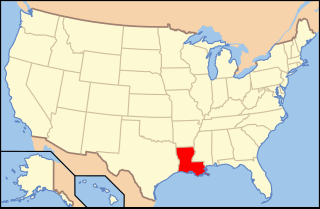
Lesbian, gay, bisexual, and transgender (LGBT) persons in the U.S. state of Louisiana may face some legal challenges not experienced by non-LGBT residents. Same-sex sexual activity is legal in Louisiana, and same-sex marriage has been legal in the state since June 2015 as a result of Obergefell v. Hodges.
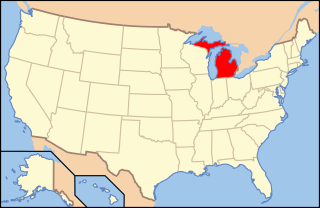
Lesbian, gay, bisexual, and transgender (LGBT) persons in the U.S. state of Michigan may face legal challenges not faced by non-LGBT residents. Same-sex sexual activity is legal in Michigan, as is same-sex marriage. Discrimination on the basis of sexual orientation and gender identity is not explicitly banned within state law. However, a ruling of the Sixth Circuit Court of Appeals and a decision of the Michigan Civil Rights Commission have ensured that members of the LGBT community are not discriminated against and are protected in the eyes of the law.

Lesbian, gay, bisexual, and transgender (LGBT) persons in the U.S. state of Ohio may face some legal challenges not experienced by non-LGBT residents. Same-sex sexual activity is legal in Ohio, and same-sex marriage has been legally recognized since June 2015 as a result of Obergefell v. Hodges. Ohio statutes do not address discrimination on account of sexual orientation and gender identity; however, the U.S. Supreme Court's ruling in Bostock v. Clayton County established that employment discrimination against LGBT people is illegal. In addition, a number of Ohio cities have passed anti-discrimination ordinances providing protections in housing and public accommodations. Conversion therapy is also banned in a number of cities.
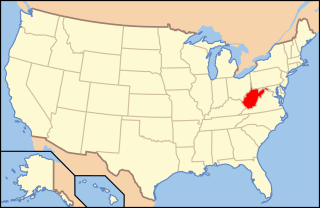
Lesbian, gay, bisexual, and transgender (LGBT) people in the U.S. state of West Virginia face legal challenges not faced by non-LGBT persons. Same-sex sexual activity has been legal since 1976, and same-sex marriage has been recognized since October 2014. West Virginia statutes do not address discrimination on account of sexual orientation or gender identity; however, the U.S. Supreme Court's ruling in Bostock v. Clayton County established that employment discrimination against LGBT people is illegal.
This is a list of events in 2011 that affected LGBT rights.
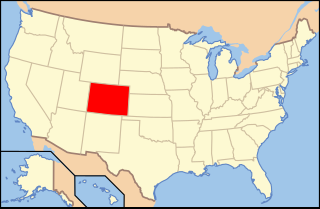
Lesbian, gay, bisexual, and transgender (LGBT) persons in the U.S. state of Colorado enjoy the same rights as non-LGBT people. Same-sex sexual activity has been legal in Colorado since 1972. Same-sex marriage has been recognized since October 2014, and the state enacted civil unions in 2013, which provide some of the rights and benefits of marriage. State law also prohibits discrimination on account of sexual orientation and gender identity in employment, housing and public accommodations and the use of conversion therapy on minors. In July 2020, Colorado became the 11th US state to abolish the gay panic defense.

Lesbian, gay, bisexual, and transgender (LGBT) persons in the U.S. state of Indiana enjoy most of the same rights as other people, but still may face some challenges that non-LGBT residents do not otherwise face. Same-sex marriage has been legal in Indiana since October 6, 2014, when the U.S. Supreme Court refused to consider an appeal in the case of Baskin v. Bogan.

Lesbian, gay, bisexual, and transgender (LGBT) persons in the U.S. state of Nebraska may face some legal challenges not experienced by non-LGBT residents. Same-sex sexual activity is legal in Nebraska, and same-sex marriage has been recognized since June 2015 as a result of Obergefell v. Hodges. The state prohibits discrimination on account of sexual orientation and gender identity in employment and housing following the U.S. Supreme Court's ruling in Bostock v. Clayton County and a subsequent decision of the Nebraska Equal Opportunity Commission. In addition, the state's largest city, Omaha, has enacted protections in public accommodations.
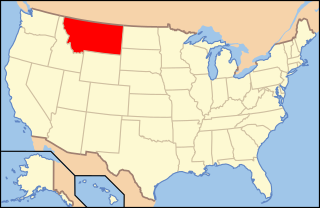
Lesbian, gay, bisexual, and transgender (LGBT) persons in the U.S. state of Montana may face some legal challenges not experienced by non-LGBT residents. Same-sex sexual activity has been legal in Montana since 1997. Same-sex couples and families headed by same-sex couples are eligible for all of the protections available to opposite-sex married couples, as same-sex marriage has been recognized since November 2014. State statutes do not address discrimination on the basis of sexual orientation and gender identity; however, the U.S. Supreme Court's ruling in Bostock v. Clayton County established that employment discrimination against LGBT people is illegal under federal law. A number of cities also provide protections in housing and public accommodations.
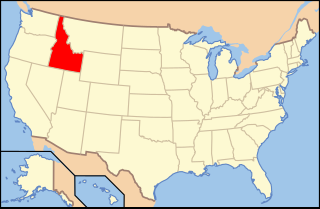
Lesbian, gay, bisexual and transgender (LGBT) people in the U.S state of Idaho face some legal challenges not experienced by non-LGBT people. Same-sex sexual activity is legal in Idaho, and same-sex marriage has been legal in the state since October 2014. State statutes do not address discrimination based on sexual orientation and gender identity; however, the U.S. Supreme Court's ruling in Bostock v. Clayton County established that employment discrimination against LGBT people is illegal. A number of cities and counties provide further protections, namely in housing and public accommodations. A 2019 Public Religion Research Institute opinion poll showed that 71% of Idahoans supported anti-discrimination legislation protecting LGBT people, and a 2016 survey by the same pollster found majority support for same-sex marriage.

Lesbian, gay, bisexual, and transgender (LGBT) people in Kansas may face some legal challenges not experienced by non-LGBT residents. Same-sex sexual activity is legal in Kansas, and the state has prohibited discrimination on the basis of sexual orientation and gender identity in employment, housing and public accommodations since 2020.

Lesbian, gay, bisexual, and transgender (LGBT) persons in the U.S. state of Alaska may face some legal challenges not experienced by non-LGBT Alaskans. Same-sex sexual activity has been legal since 1980, and same-sex couples have been able to marry since October 2014. The state offers few legal protections against discrimination on the basis of sexual orientation and gender identity, leaving LGBT people vulnerable to discrimination in housing and public accommodations; however, the U.S. Supreme Court's ruling in Bostock v. Clayton County established that employment discrimination against LGBT people is illegal under federal law. In addition, four Alaskan cities, Anchorage, Juneau, Sitka and Ketchikan, representing about 46% of the state population, have passed discrimination protections for housing and public accommodations.

Lesbian, gay, bisexual, and transgender (LGBT) persons in the U.S. state of Oklahoma enjoy most of the rights available to non-LGBT residents. Same-sex sexual activity is legal in Oklahoma, and both same-sex marriage and adoption by same-sex couples have been permitted since October 2014. State statutes do not prohibit discrimination based on sexual orientation or gender identity; however, the U.S. Supreme Court's ruling in Bostock v. Clayton County established that employment discrimination against LGBT people is illegal. This practice may still continue, as Oklahoma is an at-will employment state and it is still legal to fire an employee without requiring the employer to disclose any reason.
This is a list of notable events in the history of LGBT rights that took place in the year 2012.
This is a list of notable events in the history of LGBT rights that took place in the year 2015.